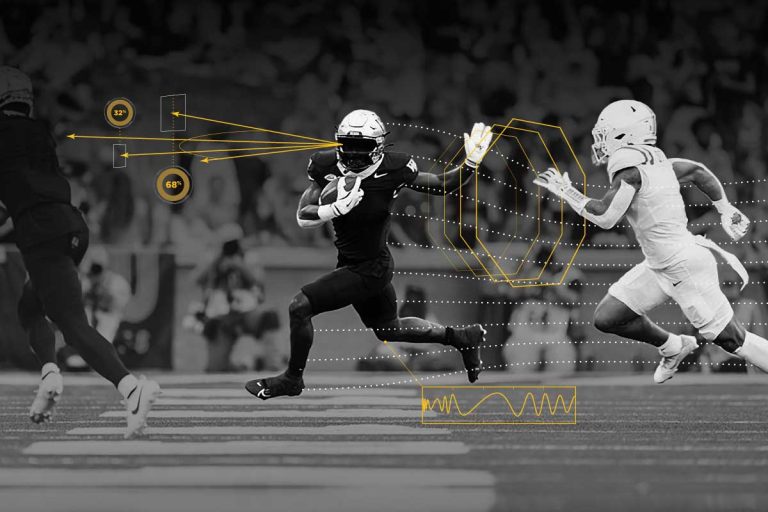Business Education at
Wake Forest University
Explore our undergraduate and graduate business programs, where students from widely diverse backgrounds and interests learn to use business to make a difference.

Undergraduate Programs
Nationally-ranked Bachelor of Science degree programs in Accountancy, Business and Enterprise Management, Finance and Decision Analytics.

Master of Business Administration
Offered in Winston-Salem and Charlotte across three program formats, the #1 part-time MBA program in North Carolina is designed specifically for working professionals.

Master of Science in Accounting
Open to any major, kickstart your accounting career with world-class faculty, premier internship opportunities and unmatched CPA pass rate success.

Master of Science in Business Analytics
Explore advanced methodologies for taking data from insight to impact across a range of functions, including finance, marketing, operations and human resources.

Master of Science in Management
A 10-month, STEM certified/OPT eligible program designed specifically for non-business majors and business minors who want to excel in today’s marketplace.

Pathways with Business
Explore how you can amplify any major with our diverse array of business program options.
School of Business Rankings
Our world-class programs are routinely recognized in major national and international rankings.
#1 and Top 20

Top 15

#3

#5

#2

#1 CPA Pass Rate

#1 in Big 4 Recruiting

Top 20

Top 10


Thought Leadership
We create a vibrant culture of inquiry, embracing interdisciplinary and discipline-based research and providing thought leadership to address business and organizational issues and key societal challenges.
Featured
Research
Explore a few of the groundbreaking ways our faculty uses research to address business and organizational issues and key societal challenges.
Journal of Medical Internet Research
Journal of Medical Internet Research
Harvard Business Review
Harvard Business Review
Journal of Business Research
Journal of Business Research
Research Policy
Research Policy
Journal of Financial Reporting and Accounting
Journal of Financial Reporting and Accounting
Business & Professional Ethics Journal
Business & Professional Ethics Journal
Our academic centers drive thought leadership and create an unrivaled connection to the market
At the cutting edge of academic research & impact

Allegacy Center For Leadership And Character
We believe a strong character is as vital as strong achievement. The Allegacy Center develops future leaders who prioritize integrity, resilience, and service, preparing students to lead with purpose in any setting.

Center For Analytics Impact
Powerful data is the driver behind inspired action. The Center for Analytics Impact turns insights into ideas, providing hands-on experience solving real problems with real data, while helping businesses make smarter and more efficient decisions.

Center For Private Business
Through expert-led programming, strategic advising, and community partnerships, the Center for Private Business supports the success of businesses that span generations.

Center For The Study Of Capitalism
How can capitalism evolve for the good of all? This center explores that question head-on, uniting scholars and thought leaders who examine how markets, policy, and purpose can coexist in a rapidly changing world.
School of Business News
5 Student Services Online MBA Students Need
(U.S. News & World Report)
How Bob’s, Ikea Are Bucking the Trend of Furniture Retail Stagnation
(Retail Dive)

How to Use Your Network to Help You Get Into Business School
(U.S. News & World Report)
Upcoming Events
Join the School of Business for a broad assortment of events and happenings that advance the practice of business.
CozyFest
Join us for our fourth annual CozyFest- a winter evening event that centers around crafting, relaxation, and connection. This year, we’re partnering with some amazing campus partners and student organizations to create an evening filled with creative and relaxing activities, a delightful assortment of teas, a tempting smores bar, and so much more! So, throw on your comfiest outfit and make plans to join us for this cozy, winter event!
2026 NoMouse Challenge Tabling Event
Join us from noon to 2 p.m. Wednesday February 11, for our in-person NoMouse competition! Compete to see who can perform specific navigation actions the fastest. Win a challenge, and spin the wheel for additional prizes or be entered into a drawing to win the grand prize, a $50 gift card. On Valentines Day, show appreciation for your keyboard!
Grad Meets World: Meal Planning with Culinary U Triad
Grad Meets World is a program with synchronous and asynchronous content about preparing graduate students for life in and beyond Wake Forest School of Business. For current pre-experience graduate business students only. Unlock the power of nutritious eating and effective meal planning with Culinary U Triad!
Piedmont Environmental Alliance Earth Day Fair 2026
Please visit the Special Collections & Archives booth at the Piedmont Environmental Alliance Earth Day Fair where we will have a popup exhibit along with special collections coloring cards, buttons, magnets, and stickers.
Earth Talks
Earth Talks is a series of short, student-led presentations that are focused on sustainability topics. Each talk is led by a Wake Forest student or group of students who are eager to share their knowledge, passions, or research with others in the Wake Forest community. Are you passionate about sustainability? You dont need to be an expert to present; submit your proposal to be involved soon! Stay up-to date on this event on Instagram at @SustainableWFU.
Spring 2026: Commencement
Spring 2026 Academic Calendar: Important dates and deadlines for the Wake Forest College (Undergraduate College) and School of Business undergraduate programs. Please visit the Registrars Office website at registrar.wfu.edu/calendars/ for the most up-to-date academic calendar information and exam schedules.
School of Business Social Media
Follow our social media channels to stay current on everything happening at the School of Business.

Explore Further
Considering a business program to strengthen your career prospects? Interested in the world-class research being done by our faculty? Or just want to speak with someone to learn more about the School of Business? Here are a few more areas to explore.






















